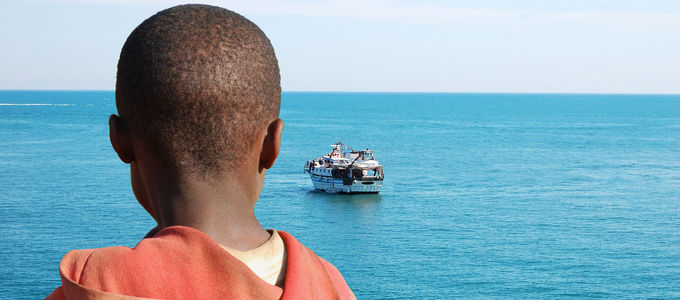
“There is no home without a house and a stove,” Abu says. He is a refugee and lives in a foreign country, far away from his homeland, his culture, and his family. Similar things occur around the world every day. What can Abu expect, and what will his life be like?
World Refugee Day is observed annually on 20 June. Today, refugees are referred to as “migrants”. The terminology makes little difference. Whether migrant or refugee, circumstances have forced them from their homes to seek refuge elsewhere. In the aftermath of World War One, hundreds of thousands were forced to flee their homelands. Many never saw them again. In December 2000, the United Nations General Assembly declared June 20th as World Refugee Day. It has been observed since 2001.
A report by UNHCR, entitled Global Trends, reports that over 65 million people were displaced from their homes in 2015, more than ever before. About half of them are children. Wars in Syria, South Sudan, and Iraq; famine and conflicts in Nigeria and Yemen—disasters such as these force people to leave their homes. Most, by the way, flee to poor countries. Rich countries receive the fewest refugees. They are beyond the refugees’ reach . Instead, the refugee camps in Africa are becoming larger and larger. They look like huge sprawling cities of tents and shacks and stretch over an area of 50 square kilometres.
Being displaced is a nightmare
“To lose your home is a nightmare,” Abu says. He had to leave everything that was familiar to him, that he loved, and what he had built up for himself in exchange for the unknown. These two worlds are poles apart, and the way between them is long, exhausting, and dangerous. That refugees are traumatised is no wonder. “All I want is a life,” Abu asks. The Bible speaks about the image of a bird that flees from its nest: “Like a bird that wanders from its nest is a man who wanders from his place” (Proverbs 27: 8).
Helping refugees—a Christian duty
That the Christian commandment to love one’s neighbour also includes helping refugees goes without saying. Jesus Himself was a refugee. He had just been born when His parents had to flee to Egypt. Throughout His life Jesus was persecuted, hunted, and rejected. So were His Apostles and the first Christians. Being a Christian often means: being persecuted for the sake of the gospel and at the same time standing up for those who are being persecuted. The best way to do this is to desist from violence and love one’s neighbour. This is the way to creating a better world—not through violence or displacement of people.
Friends, strangers, enemies—they are all our neighbours. This is what Chief Apostle Jean-Luc Schneider often says in his divine services. He means both help on an emotional level through prayer and listening, but also hands-on aid by the individual. Examples of solidarity are being set by the District Churches.
There are so many refugees, far too many
The Geneva Convention of Refugees defines refugee as a person “who owing to a well-founded fear of being persecuted for reasons of race, religion, nationality, membership of a particular social group or political opinion, is outside the country of his nationality and is unable or, owing to such fear, is unwilling to avail himself of the protection of that country” (Article 1). There are far too many such refugees.
Photo: Franco Volpato




